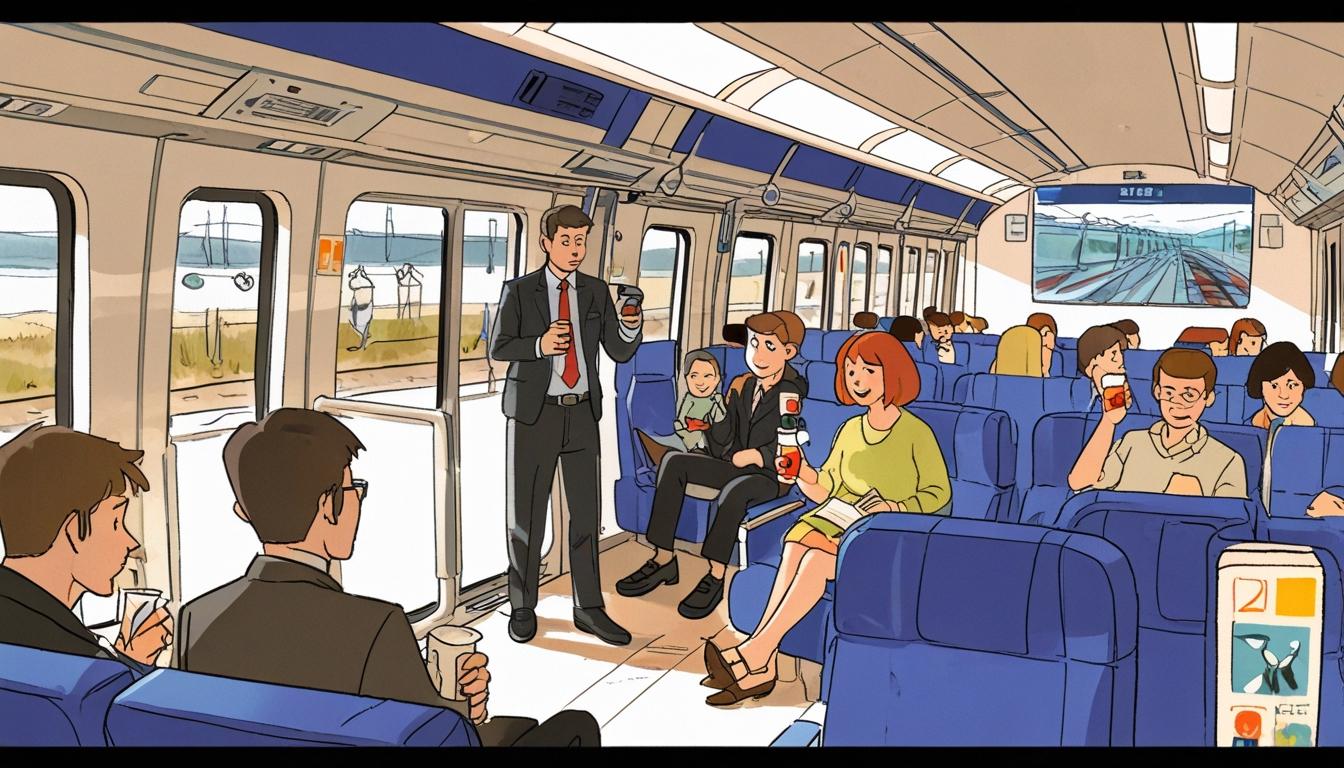An alcohol ban on ScotRail trains will be lifted on 2 June 2025, a decision announced by Transport Scotland following extensive deliberation on the policy's effectiveness and enforceability. This shift marks the conclusion of a prohibition originally put in place in November 2020, amid the COVID-19 pandemic, aimed at curbing anti-social behaviour that had intensified during that period.
During its operation, the alcohol ban forbade the consumption of alcohol on trains and visible alcohol on platforms, purportedly to promote public health and safety. Yet, officials have voiced concerns that the restrictive measure not only proved challenging to enforce but also did not significantly improve the behaviour of intoxicated individuals. As a Transport Scotland spokesperson articulated, while the majority of passengers exhibit responsible conduct, a recalcitrant minority leads to disturbances.
The decision to end the ban comes as part of a wider initiative to address anti-social behaviour on Scotland's railways. Although alcohol consumption will be permitted between 10 AM and 9 PM, restrictions may still be applied during major events, with ScotRail and the British Transport Police deciding these measures in advance. Such flexibility indicates a responsive approach to managing the complex dynamics of rail travel during busy periods.
The groundwork for this decision was laid in discussions that commenced on 8 May in a working group directed at enhancing the enforcement of behavioural standards across the rail network. With various stakeholders, including the Scottish Government, ScotRail, and the British Transport Police involved, there is a concerted effort to examine and potentially strengthen enforcement powers to deal swiftly with persistent offenders.
In tandem with lifting the alcohol ban, ScotRail is also implementing new protocols aimed at reducing violence and disorder. These include enhanced training for frontline staff in conflict management and the bolstering of security measures, such as the introduction of Travel Safe teams and the installation of additional CCTV. Furthermore, targeted initiatives to combat unacceptable behaviour towards women and girls underline a commitment to creating a safer travel environment.
Responses from key stakeholders have generally been favourable regarding these planned changes. Both rail unions, RMT and ASLEF, have welcomed the lift on the ban alongside a renewed focus on anti-social behaviour. Gordon Martin, regional organiser at RMT Scotland, highlighted the importance of creating safer conditions for railway employees, who often face threats and abuses during their work. Echoing this sentiment, Fiona Hyslop, Scotland’s Cabinet Secretary for Transport, emphasised the necessity of collaboration among frontline staff and policymakers to devise practical solutions to entrenched issues.
While there appears to be support among many stakeholders for the end of the alcohol ban, public sentiment remains mixed. A survey indicated a divide among the Scottish public, with opinions roughly split down the middle on whether the ban should be lifted. In December, a separate poll revealed that 56% of ScotRail passengers expressed a desire for the prohibition to end, reflecting a significant demand for change among regular commuters.
As Scotland’s railways embark on this new chapter, it remains to be seen how these changes will impact passenger experiences and the overall safety climate. The approach of targeted restrictions, rather than a blanket prohibition, signals an adaptable regulatory framework that aims to balance enjoyment of rail travel with maintaining decorum onboard.
Travelling by rail could soon take on a renewed sense of freedom, though the focus on safeguarding the rights and security of all passengers will remain paramount as ScotRail navigates this evolving landscape.
Reference Map
- Paragraphs 1, 2, 3, 4, 5
- Paragraphs 1, 2
- Paragraph 6
- Paragraph 6
- Paragraph 6
- Paragraph 6
- Paragraph 6
Source: Noah Wire Services
